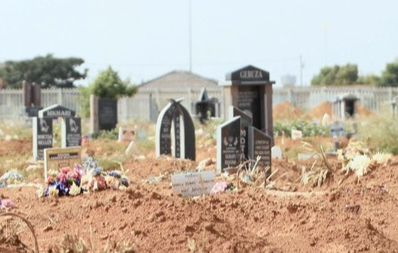How to investigate Cemeteries? South African Guidelines

We receive many queries about the how to investigate cemeteries.
As a quick reference, we herewith make available the latest published South African guidelines that include the engineering geological and hydrogeological aspects.
ENVIRONMENTAL RISK ASSESSMENT, MONITORING AND MANAGEMENT OF CEMETERIES
Report to the Water Research Commission by Matthys A. Dippenaar1 (project leader) Jana Olivier1 Simon Lorentz2 Eunice Ubomba-Jaswa3 Akebe L. K. Abia4 Roger E. Diamond1
1 University of Pretoria 2 SRK Consulting Engineers 3 CSIR Water and Health 4 Vaal University of Technology
WRC Report No. 2449/1/18 ISBN 978-1-4312-0978-1
May 2018
Investigation for cemetery sites require the detection (i) of a wide range of different contaminant groups, (ii) at typically very low to concentrations (if present), (iii) natural and geological impacts on the proposed developments; and (iv) with important human and ecosystem health effects, if undetected. The issues of interment and how we deal with the deceased in general transect disciplines of natural science, engineering and social science. Given the sensitive nature of interment and the established notions of acceptable practice at an individual and personal level, assessment of cemeteries is often frowned upon as being an infringement on people’s humanity. Cemeteries are, therefore, considered to require understanding of environmental or sanitary aspects, geotechnical or engineering aspects, and social aspects.
Investigation Guidelines Proposed guidelines improve data acquisition to better assess risk posed to man, development, and the environment through land use change to cemeteries. Risks assessed include those related to human and ecosystem health, and the safety of people on site and the general public. Building on existing best practice, standards and appropriate legislation, assessment protocols for engineering geological/ geotechnical and hydrogeological/ geohydrological investigation are supplied. These can be used as terms of reference in tenders or requests for proposals to ensure comparable and adequate scopes of work. For completion of environmental impact assessments (EIAs) and water use licenses (WULs), Phase 2 investigations conducted by professionally registered competent specialists are required. Recommendations should include continuous environmental monitoring.
Read the full report attached.
Interested in reading more on Cemeteries Research in South Africa?
Search Publications | ResearchGate